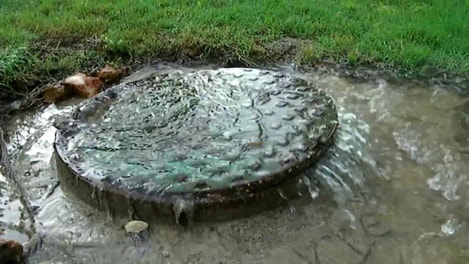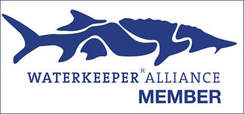 23.6 million gallons of raw sewage and billions of gallons of minimally treated sewage to the Pearl River and its tributaries in the first quarter of 2019. From Jan-March 2019, 65 separate Sanitary Sewer Overflow (SSO) discharges to "Waters of the State" occurred from the collection system sewer lines associated with the Savanna Street Wastewater Treatment Plant (WWTP). In the first quarter 2019, raw sewage released from the West Bank Interceptor line totaled 23 million gallons, 4 times the total amount of raw sewage released during the entire year of 2018. Untreated sewage has flowed into most of the Jackson creeks that lead to the Pearl River, including Town, Eubanks, Belhaven, Lynch, Hanging Moss, Eastover and others. What is a a Sanitary Sewer Overflow? A Sanitary Sewer Overflow (SSO) is an event in which untreated sewage is discharged from the sewage collection system into the environment prior to reaching the sewage treatment facilities. These discharges endanger human health, cause property damage, and degrade our local water quality.
The SSO events experienced by the City of Jackson collection system were caused by excessive flow, collapsed pipes, grease/fat buildup, and blockages from roots and solids. Higher than average rainfall in the first quarter of 2019 overwhelmed the system. In addition, the City of Jackson's aging sewer lines are crumbling and collapsing in many areas. EPA Consent Decree In November 2012, the Jackson City Council entered into a consent decree with the EPA and MDEQ regarding operations at the Savanna Street Wastewater Treatment Plant. The consent decree required the City to pay a civil penalty of $437,916, execute a $875,000 environmental project, and overhaul its wastewater treatment plant and collection systems. The City was given 18 years to fully comply, with the vast majority of the work to be completed within the next 11 years (by 2023). The City of Jackson was required to develop prioritization work plans, rehabilitation plans, preventative maintenance programs and supplemental environmental program timelines. The City is required to submit quarterly, semi-annual and annual reports to the EPA and must publish these on their website. Recent City of Jackson actions
Consent Decree Renegotiation The City of Jackson has requested that the EPA review the Consent Decree for potential renegotiation citing lack of funding to complete the necessary requirements of the original decree. The EPA is currently working through that process. If there is a "major modification" to the Consent Decree, then the amended decree will go to public notice with an associated public comment period. Pearl Riverkeeper will keep you updated if this occurs. Savanna Street Wastewater Treatment Plant According to the 2019 first quarterly report, there has been an ongoing "Prohibited Bypass" at the Savanna Street Wastewater Treatment Plant since Dec 9, 2018. A "Prohibited Bypass" occurs when the plant is overwhelmed with excessive flow, usually due to high rain events, and bypasses must occur. "All bypassed volume is chlorinated, de-chlorinated and required samples taken prior to blending with the mechanical plant effluent and subsequently discharged to the Pearl River". As of the end of the first quarter reporting period, 2.47 billion gallons of minimally treated sewage has been discharged to the Pearl River. Is public notification required during an SSO event?
Where have the City of Jackson 2019 SSO events occurred? Check out our interactive map below to find out if a SSO event occurred in your City of Jackson neighborhood. Click on the pinned locations for information about the date, location, cause of the overflow, and amount of untreated sewage released. Large Scale Map Link
Camille Richards
5/8/2019 12:57:37 pm
The lack of public reporting AND accountability is appalling! This does not just affect our waterways and recreation, it affects what we drink!! What can we do to increase awareness and accountability?
Abby Braman
5/8/2019 02:24:05 pm
You are so right, Camille. Pearl Riverkeeper is pushing MDEQ and City of Jackson to review and update their public notification procedures. States of Florida, Alabama, and Georgia all have laws requiring their Departments of Environmental Quality to report sewer spills on their website within 24 hours. We need more transparency for the sake of public health.
John Irwin
5/9/2019 05:20:38 pm
The Mississippi Legislature should simply prohibit chicken producers, waste dumpers, paper mills and any other business that produces deleterious wastes from introducing any of their wastes or industry bi-products into any of Mississippi's water ways. 3/1/2022 05:13:24 am
If sewage overflows into basements, rivers, and the Harbor are not enough, serious financial concerns accompany the problem. Comments are closed.
|
AuthorPearl Riverkeeper is a licensed member of the Waterkeeper Alliance, the largest and fastest growing nonprofit solely focused on clean water. Archives
July 2024
Categories |
|
Ready to support our work for Clean Water and Healthy Rivers?
|
|

 RSS Feed
RSS Feed
